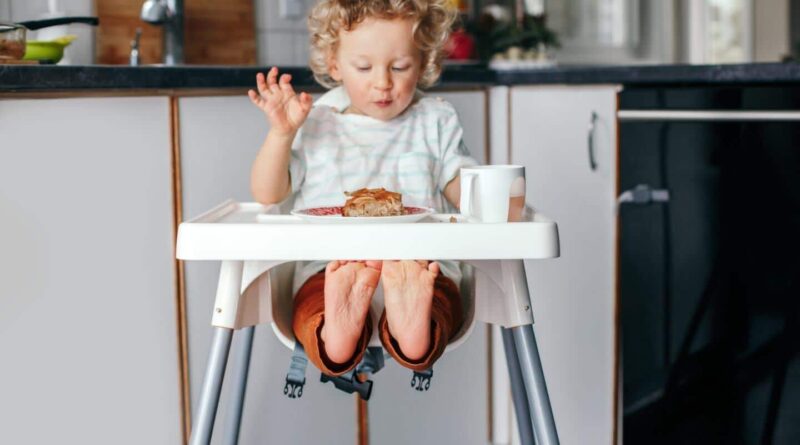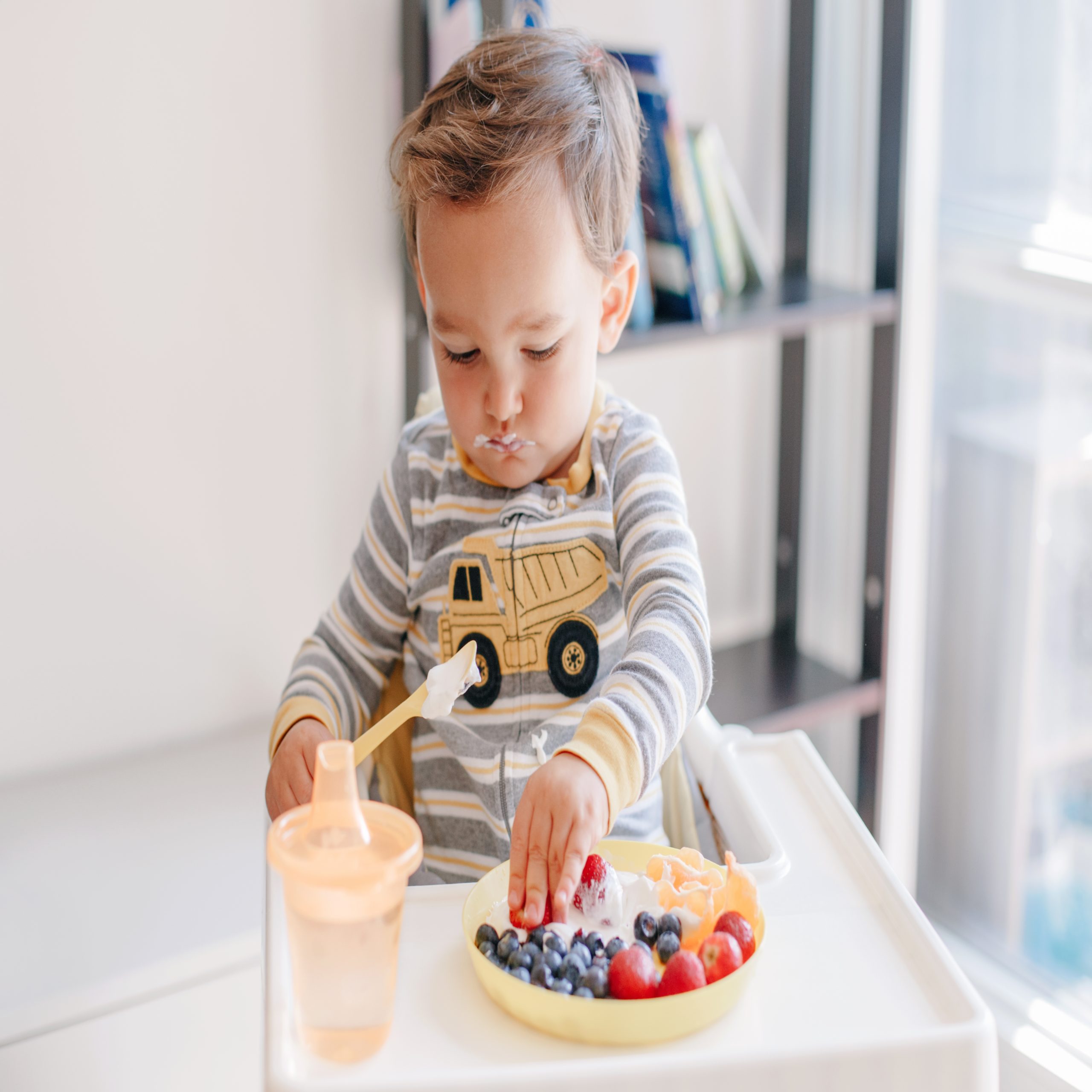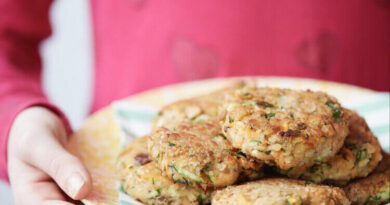Confession: I’m a dietitian and feeding my daughter is a struggle
When I was six months pregnant with my first, I stood in front of a local mother’s group naively presenting about nutrition and solid foods. As I went through my PowerPoint with typical dietitian enthusiasm, I promised the newish moms that repetition is what matters, and though it can take up to 20 times for a child to accept a new food, they will eventually eat it.
Sure, I hadn’t had my baby yet, but that’s what all the experts said. I had no idea what it was like to painstakingly put together a meal for my child, only to have them reject it. So what if your child throws their labor-intensive homemade dinner on the floor—just keep offering!
They were probably rolling their eyes.
Fast forward almost a year later, and my baby started solids. I re-read the books and stocked the freezer with homemade options. My child was willing to eat most foods (and still is), and I felt vindicated. Like most new mamas, I questioned nearly everything in those early months, but food and nutrition were my forte. Something I finally felt confident about.
My second child became a picky eater
Parenting humbles us in so many ways. Baby number two came into the world four years later, and this time when it was time to start solids, I was ready. I didn’t have time to make as much of the baby-specific food, so she was exposed to even more flavors and textures as I simply chopped or mashed what the rest of the family was eating.
She seemed to love it all. Until she didn’t.
One refusal turned to three. Then five. Pretty soon, we were down to a short list of foods. Absolutely no vegetables; they couldn’t even touch the plate. Apples were the only acceptable fruit, and whole wheat anything was off-limits. Even tomato sauce was a no-go.
I’m hyper-aware of the long-term impact of an early introduction of diet culture and food restriction on children, so I work hard not to label foods good or bad. Instead, we focus on making choices and highlight foods that make us strong, help our brain and heart, or allow us to move our bodies more.
But when my daughter started flat-out refusing all the foods that helped balance out her diet choices, I ignored most of my dietitian training. Forget calmly offering rejected foods; I did everything I taught other parents not to do. I coaxed (OK, begged) her to take just two more bites. I rewarded her eating with dessert. I found myself getting emotionally invested in whether or not my daughter would just try a taste of the dinner I made her.
And surprise, none of it worked, and it only made mealtime more stressful. The more pressure she felt, the less she ate.
I felt like I had utterly failed.
All the confidence I felt with my first child flew out the window. I was a dietitian, the one who was supposed to teach other parents how to feed their own kiddos. And yet, I had no control and couldn’t even get my daughter to try a new food, let alone accept it.
blogherads.adq.push(function(){
blogherads.defineSlot(‘flexrec’, ‘ad_div_in_body_2’).setTargeting(‘targetingKey’,
‘targetingValue’).display();
});
Even worse, I know too much about food and nutrition. So I stressed about missing nutrients. I even worried she had ARFID (Avoidant Restrictive Food Intake Disorder), an eating disorder in kids that goes way beyond your typical “picky” eater.
What I’d tell another worried mama of a picky eater now
Some days I was truly baffled at how my daughter continued to grow and remain her funny, vibrant self.
But what would I say to another mama who came to me worried about her child’s eating habits? I’d tell her that the first thing to do would be to connect with her child’s pediatrician to check growth and nutrients of concern like iron. I’d suggest talking to a dietitian specializing in pediatrics to get some extra-individualized support.
Even further, I’d tell her to look at her child. Are they happy, growing and meeting milestones? If the answer to all is yes, they’re going to be OK.
Motherhood means letting go of expectations
My experience with my daughter is just another reminder of a big parenthood lesson: There’s no one right way to do any of it.
No two children are the same. I quickly learned that just because you take the exact same path with each child doesn’t mean the result will be the same. What works for one may not (and most likely won’t) work for the other.
My littlest isn’t trying to be difficult (even though she is my fiery little Aries). She is sensitive to smells (which I know ties closely into food aversions), and she absolutely 100% will not do something if she feels pressure. Her refusal to try food isn’t stubbornness. It’s just part of who she is and how she’s made.
So while I can’t completely let go (nutrition is important), I try to recognize that this is just one of those motherhood lessons. We can do everything “right,” but the tiny human standing in front of us may not fit into the typical mold. And that’s just fine.
She’s still not eating everything I give her. But the more I try to understand her needs, the more relaxed I am and the better she does (though this, too, is a work in progress).
And we are slowly working on it, together, one carrot spear at a time.
blogherads.adq.push(function(){
blogherads.defineSlot(‘flexrec’, ‘ad_div_in_body_1’).setTargeting(‘targetingKey’,
‘targetingValue’).display();
});







